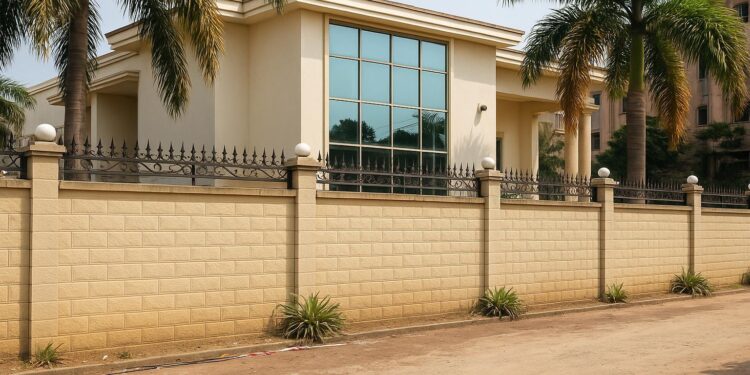Supreme Court ruling cements Bulgarian claim
The Republic of Congo’s Supreme Court has ended a long-running ownership battle over a 982-square-metre plot in downtown Brazzaville, confirming Bulgaria’s title to the land that hosts its chancery. The final verdict, delivered on 13 August 2025, cannot be appealed.
Rule-of-law signal for investors
For diplomats and investors, the ruling signals that Congolese courts can arbitrate sensitive sovereign cases, echoing President Denis Sassou Nguesso’s recent pledge to strengthen the rule of law.
Timeline of a protracted dispute
At the centre of the dispute stood Gisèle Ngoma, a Brazzaville entrepreneur who claimed to have bought the plot decades after Bulgaria had signed its 1971 notarial deed. She challenged successive judgements, arguing procedural flaws and insisting the original title had lapsed through non-occupation.
International law in the courtroom
The Court of Appeal ruled in favour of Sofia on 2 December 2024, ordering Mrs Ngoma’s eviction and damages of five million CFA francs. Its reasoning highlighted the Vienna Convention on Diplomatic Relations, which obliges host states to protect mission premises against intrusion or impairment.
By endorsing that judgment, the Supreme Court reinforced a precedent set in 2019 when it upheld Kenya’s ownership of its embassy land against a private claimant. Legal analysts at Université Marien Ngouabi say the pattern illustrates an emerging body of jurisprudence safeguarding diplomatic tenure.
Archival roots of the title
According to archival registers consulted by Les Dépêches de Brazzaville, the disputed parcel, listed as title 1571, was part of a colonial-era grid earmarked for administrative buildings. The 1971 sale to Bulgaria, notarised by Roger Gnali Gomez, followed Soviet-backed expansion of Eastern Bloc missions in Central Africa.
Gaps in local land committees
Mrs Ngoma’s acquisition claim relied on a 1998 certificate issued by a now-dissolved local land committee. Court documents show the committee lacked authority over diplomatic plots, a gap that successive urbanisation codes have since closed, according to the Ministry of Land Use and Public Domain.
Responses from Sofia and Brazzaville
Bulgarian officials welcomed the verdict. An aide to Foreign Minister Mariya Gabriel said in Sofia that the ruling “strengthens our confidence in Congolese institutions and clears the path for renovating the chancery, which has suffered from years of uncertainty”. No timetable for works was provided.
In Brazzaville, the Ministry of Foreign Affairs issued a succinct statement emphasising respect for judicial independence and the country’s “tradition of hospitality toward all accredited missions”. Officials underlined that enforcement measures would be carried out “in consultation with the parties, taking humanitarian considerations into account”.
Civil society weighs in
Civil-society reactions were measured. The Congolese Observatory for Human Rights said the case demonstrated that property disputes could be settled without “street politics”, but urged authorities to communicate clearer land-registry procedures to avoid future conflicts. Business associations echoed the call, citing investor interest in city-centre lots.
Human dimension for the claimant
For Mrs Ngoma, the ruling ends a twenty-year effort to regularise her claim. Her counsel, Me Jean-Baptiste Ibara, told reporters he respected the decision but would seek an “equitable arrangement” on the eviction timeline, noting his client’s commercial equipment stored on the premises.
Regional diplomatic precedent
Legal practitioners interviewed by Jeune Afrique believe the Supreme Court’s reliance on international conventions could bolster Congo’s standing ahead of the Universal Periodic Review at the UN Human Rights Council in 2026, where property guarantees for foreigners are expected to feature prominently.
Stakes for foreign missions
Foreign missions in Brazzaville collectively own more than 60 hectares of land, according to the Urban Cadastre. Officials at the European Union delegation say clarity over tenure is essential for planned security upgrades, while the Chinese embassy is finalising a multistorey annex after resolving boundary questions.
Economic governance angle
Economists argue that robust land governance could complement Brazzaville’s ongoing talks with the IMF. A senior treasury official points out that transparent registries help benchmark collateral values, potentially lowering the cost of sovereign borrowing as the country pursues diversification beyond hydrocarbons.
Continental relevance of embassy disputes
From a diplomatic vantage, the verdict reverberates beyond Congo-Bulgarian relations. Analysts at the South African Institute of International Affairs note that disputes over embassy land have surfaced recently in Abuja, Dar es Salaam and Antananarivo, suggesting that African jurisdictions are increasingly called upon to mediate sovereign property claims.
Implementation phase ahead
For now, attention shifts to implementation. Court bailiffs are expected to serve the eviction order within thirty days, but diplomats say the handover will likely be coordinated to minimise disruption. If executed smoothly, the episode may stand as a case study in quiet legal diplomacy.
A long-standing bilateral relationship
Bilateral ties between Brazzaville and Sofia date back to 1964, when Bulgaria recognised Congo’s independence and offered scholarships in engineering. Trade today is modest, dominated by lumber imports and Bulgarian pharmaceutical exports, but officials foresee potential in agri-processing partnerships.
Next steps for the chancery
As the courthouse doors close on the dossier, diplomats suggest the emphasis now lies in translating legal clarity into bricks and mortar. The Bulgarian mission plans to reopen consular services next year, a small but tangible dividend of a closely watched judgment.












































